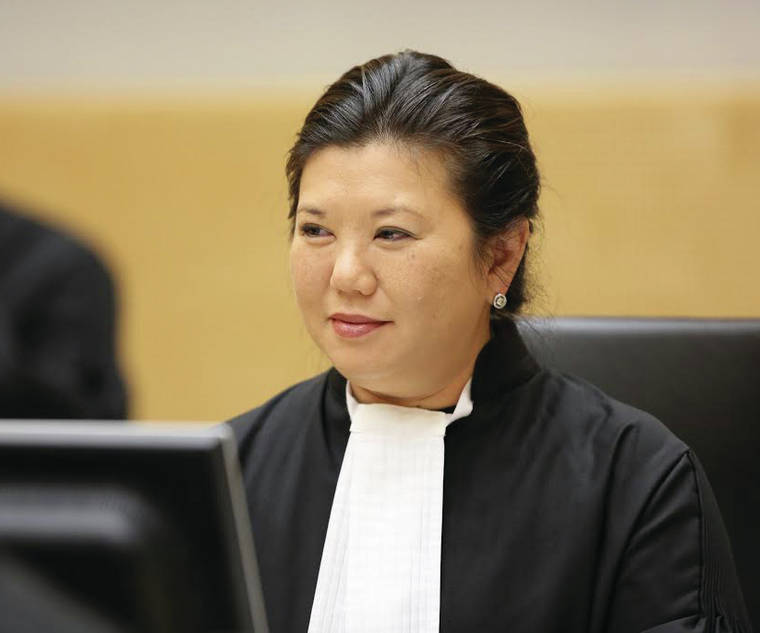After working nearly seven years as a prosecutor at the International Criminal Court in The Hague, it would be understandable if Cynthia Tai wanted to kick back, relax and take it easy for a while.
Since her return to the Big Island in 2014, Tai has done the exact opposite. In 2016, she founded Project Expedite Justice: a nonprofit organization dedicated to providing access to justice to
survivors of mass atrocities in some of the world’s most marginalized populations in conflict or post-conflict areas.
For this, the Hawaii State Bar Association honored Tai on Friday with the 2020 Champion for Social Justice Award – an honor recognizing an attorney “that helps promote the interests of justice and preserves the integrity of the judiciary.”
“I’m honored that the work is being recognized,” said Tai.
“Not for me, because I don’t think it’s about me. It’s about what we can do; we live in a time where people feel helpless and a bit apathetic… It’s very easy to come up with all the reasons why you can’t succeed. It’s a much harder game to figure out what you can do. So I think about our work that way.”
Since found Project Expedite Justice, Tai and her team of
lawyers around the globe have worked on cases ranging from human trafficking and forced labor in Cambodia to war crimes, crimes against humanity and genocide in Sudan, South Sudan, Ethiopia and other developing countries.
The organization works with and trains local lawyers to properly collect and preserve evidence, ensuring they’re able to make the best possible case to insist on accountability for perpetrators and equality for the marginalized populations that they represent.
“What we do, how I look at it, is to provide technical support,” said Tai. “Do you need knowledge? I can help you write a brief. Do you need help so that you can collect evidence? Do you need help writing an advocacy report?”
Though the organization’s case count since 2016 isn’t massive, the implications stemming from their cases have been.
PEJ’s presence in Sudan, for example — where two wars are currently raging and bombs have been regularly dropped on primary schools and hospitals — benefits more than three million people. On Aug. 26, the Paris Tribunal in France opened PEJ’s case against BNP Paribas — one of the largest banks on the planet — for complicity in funding the Darfur genocide. Going after funding has proven to be one of the most effective ways PEJ has found to deter the future commission of atrocities.
“Many individuals who are responsible for mass atrocities are in it for the business, as war is a business just like any other,” said Tai. “People tend to perk up when you start cutting off sources of money.”
Working abroad so much — pre-COVID-19, she spent approximately half her time outside Hawaii — has allowed Tai to gain a unique perspective. She hopes that as our society moves forward through COVID-19, people will do more to preserve what they value most. For Tai, that starts with protecting the rule of law.
“Basic human rights need to be respected; when you don’t respect them, they leave,” she said.
“If we have a functioning rule of law, then it makes room for journalists to have freedom of expression, to say what you want to say, to write about what you want to write about. It allows artists to create beautiful things without fear of retribution. If you don’t have rule of law, the cultural aspects of our lives never fully advance or exist.”
The job doesn’t allow Tai to have
much free time, but she wants her example to show people, especially children, what’s possible.
“I want people to know that you can do it, and you can do it from Kona,” said Tai.
“I want kids to know that. You can grow up and be whatever you want to be. The competition at the International Criminal Court is tough; it’s 10,000 to 1 that you’ll get a job. But if you work hard, you can make a difference.”
Those wanting to support PEJ can do so by contacting them or donating online at www.projectexpeditejustice.org.



